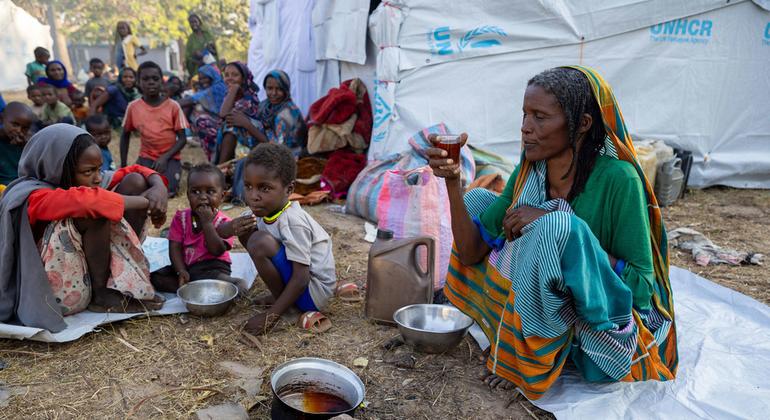As the UN prepares to launch a record $4.2 billion funding appeal to support aid operations in Sudan, the country is facing what has been dubbed “the largest and most devastating displacement, humanitarian, and protection crisis in the world today.” The clashes that erupted in April in the capital, Khartoum, have dashed hopes for a peace process initiated in late 2022, which promised the establishment of a civilian government following the fall of dictator Omar al-Bashir.
Violence broke out between the Armed Forces and the Rapid Support Forces, leading to an armed conflict whose brutality has been condemned by the UN, which has also called for urgent dialogue between the conflicting parties. This outbreak of violence has triggered a humanitarian crisis affecting over 30 million people, more than two-thirds of the country’s population, who require urgent assistance.
The economic collapse caused by the war has led to a drastic increase in food prices, fuel, and other basic commodities. Over half of the population faces alarming levels of food insecurity, with famine conditions confirmed in several locations and an increase in malnutrition rates, especially in South Kordofan.
The massive displacement of people has also generated a crisis of unprecedented proportions, with over three million refugees and nearly nine million internally displaced persons. This figure surpasses the population of Switzerland, and many of these displaced individuals are in critical conditions, facing resource shortages and limited access to essential services, as well as outbreaks of diseases.
Insecurity has been another devastating effect of the conflict, with over 18,800 civilians reported dead and a disturbing increase in violence. Women and girls are the most affected, exposed to a high risk of rape, forced marriages, and kidnappings.
Lack of funding has become a significant obstacle to the UN’s ability to provide necessary assistance. With growing humanitarian needs, a funding appeal will be launched on Monday seeking to raise $4.2 billion, as well as an additional $1.8 billion to help neighboring countries hosting refugees. These funds are critical to reach the 21 million people in need of aid and ensure minimum assistance in this unprecedented crisis.
Referrer: MiMub in Spanish










